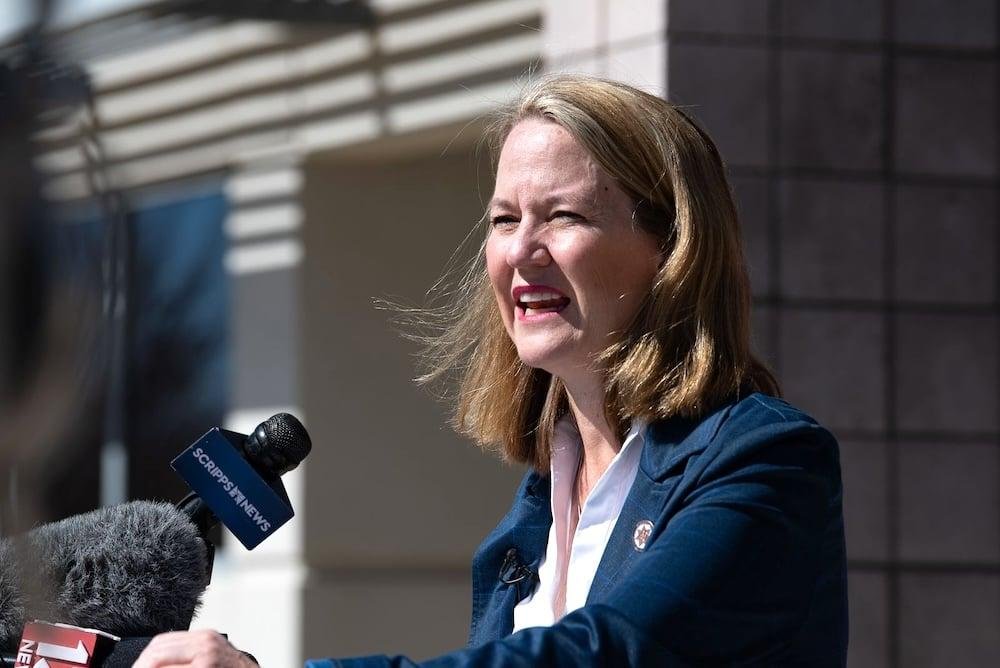arizona
Arizona AG Clarifies Key Aspects of Voter Registration Law Upheld by SCOTUS

Arizona Attorney General Kris Mayes has issued guidance to county recorders following a pivotal U.S. Supreme Court ruling that altered the state’s voter registration law just weeks before the upcoming election.
On August 22, the Supreme Court upheld a segment of a voter registration law currently being challenged in federal court, empowering Arizona to restrict registration for certain eligible voters.
This contentious law, approved by voters in 2004, mandates proof of citizenship for voter registration. However, the National Voter Registration Act of 1993 requires states to accept federal registration forms that do not impose a citizenship requirement. A 2013 Supreme Court ruling further determined that Arizona could not reject these federal forms.
The result has been a dual voter system in Arizona. Voters who provide proof of citizenship can participate in all races, while those who claim citizenship without documentation are limited to federal elections. Currently, about 32,000 residents fall into the “federal only” voter category, including many students.
The recent Supreme Court decision reactivated a section of the controversial law from 2022 that had been previously blocked, allowing the state to refuse state voter registration forms from residents lacking the requisite documentation.
Responding to a request from Secretary of State Adrian Fontes, Mayes released her legal opinion on September 23. She outlined how county recorders should navigate the new requirements as the election date approaches.
Her guidance emphasizes checking the Motor Vehicle Division database for proof of citizenship in cases where no documentation accompanies a state voter registration form. If an applicant is found eligible through this verification, county recorders are required to register them as full ballot voters, thus meeting all necessary registration standards.
Mayes also resolved discrepancies between state law and a federal consent decree regarding proof of citizenship deadlines. She instructed recorders to adhere to Arizona’s Election Day deadline of 7 p.m., overriding the earlier 5 p.m. deadline specified in the consent decree.
If applicants are informed their registration lacks proof of citizenship and provide the necessary documentation by 7 p.m. on Election Day, they should be regarded as registered from the date their application was initially received. This clarification is crucial as the deadline to register for the November 5 election is October 7.
The August Supreme Court ruling was significant for Republican leaders, including Ben Toma and Warren Petersen, who contested a lower court’s decision that had blocked enforcement of the law. However, the court did not grant a request from the Republican National Committee to extend the law to prohibit those without citizenship proof from voting by mail in presidential elections.
According to an analysis by Votebeat, the law, which has strong Republican backing, is likely to disproportionately impact younger voters, especially those attending college who may register without proper documentation.
This law is framed as a measure to prevent non-citizens from voting by enforcing citizenship checks on federal forms. Nonetheless, claims of widespread noncitizen voting remain unsupported by evidence; studies indicate such occurrences are extremely rare.
Recently, Maricopa County Recorder Stephen Richer reported that around 97,000 Arizonans were mistakenly registered to vote. This issue primarily affects Republicans who received driver’s licenses before 1996 and did not provide the necessary citizenship documentation due to a computer error at the MVD. As a result, many within the Arizona GOP and state political leaders contend that alterations to their voter registration status should not occur so close to the election. The Arizona Supreme Court supported this argument in a ruling on September 20, stating no law allows for changes to these voters’ registration statuses.


















